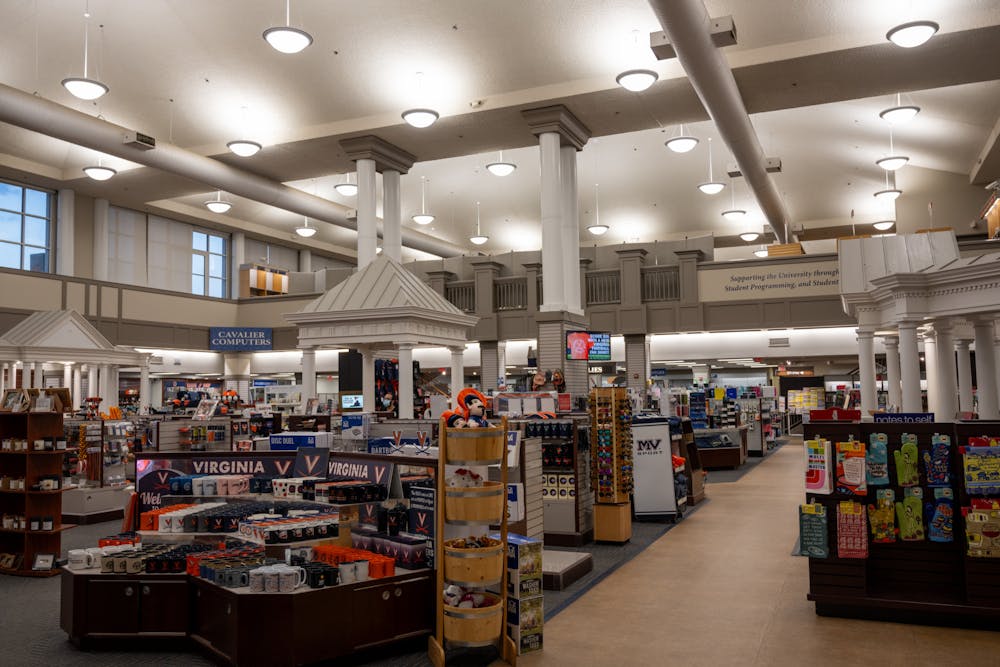Take a walk through the University Bookstore, through the aisles of licensed Nike merchandise and orange hoodies, and you’ll find everything from an infant’s sabre onesie to a Rotunda teacup and a puppy cheerleader dress. With a seemingly endless array of options, fans can purchase nearly any piece of gear imaginable — given such a high output, maintaining high ethical standards for the manufacturing of these products requires a high level of commitment.
The head of the Worker Rights Consortium recently credited four Virginia schools, including the University, with encouraging more responsibly made products. On Grounds, students involved with sustainable fashion groups report they are encouraged by the University’s relationships with the Fair Labor Association and WRC, but work towards true sustainability remains to be done.
Although the University is partnered with the FLA and WRC, some of the companies with which they have relationships have had issues relating to workers rights in the recent past. For example, Nike, a company prominently featured in University bookstore offerings, was reported to have forced labor in certain factories in China in 2020.
As a member of the FLA and the WRC, the University is required to pay affiliation dues and publicly disclose all factories with which they partner to produce apparel. Both organizations fight for the humane treatment of laborers in the garment industry. The University most recently updated their disclosure list for the WRC Oct. 10, including the list of 282 factories and licensees that produce merchandise for the University.
Julianna Santella, Futures in Fashion Association co-president and fourth-year College student, said she supports the University’s partnerships with the FLA and the WRC. FFA connects students who are interested in fashion, often with an emphasis on sustainability.
Yet Santella said despite these positive partnerships and the University’s advertised commitment to sustainability in the 2030 plan to be the top public university, she suspects that sustainability was not the top focus of merchandising teams when selling apparel.
“I do think that when it comes to merch, [the University’s focus] is probably profit, which is the sad reality of a lot of universities that put money first,” Santella said.
Both Santella and Piera Molin, SWAP’s sustainability chair and third-year College student, had suggestions for the University to promote further sustainability and ethical practices in apparel in the future. SWAP is an organization on Grounds that supports sustainability and accessibility in fashion, in part by promoting monthly clothing swap events.
Santella said she hoped that the University would dedicate more support to organizations on Grounds that are already promoting ethical fashion practices, such as FFA, and also proposed that the University bookstore sell second-hand merch from alumni at a discounted price in order to create circular fashion practices.
Molin suggested that the University turn to its own research labs to find more environmentally and ethically responsible methods of producing apparel.
“I hope they look to the future and look at the innovation in sustainability right now,” Molin said. “Especially since we’re a research university, I think that it could be really helpful and also advance the university itself.”
In terms of the University’s current plans, Molins said the bookstore is great for profit, but the high turnover rates of merchandise may create waste in the long run.
“I think that [the University] should be more intentional with the products that they make and how they’re getting them, but at the same time, on a larger scale, I’m glad that they have these partnerships,” Molin said.
Through its continued partnership with the FLA and the WRC, University spokesperson Bethanie Glover said the University hopes to continue to encourage more responsibly-made products. In the college and university apparel sector of the garment industry, the University is particularly interested in promoting sustainable and ethically-made merchandise, according to Glover.
“We have ongoing relationships with these associations… so that they can monitor any violations in the supply chain for university apparel and get those remedies for workers and more responsible product manufacturing,” Glover said in a written statement to The Cavalier Daily. “That requires ongoing vigilance and monitoring, but we have a history of being committed to holding our licensees and manufacturers to a high standard.”
The University’s support of these organizations has been applauded by influential advocates in the fight for workers’ rights. Scott Nova, the executive director of the WRC, recently spoke to the Daily Progress and the Richmond Times-Dispatch about the involvement of colleges and universities with the organization, commending the relationship as a powerful force for advancing workers’ rights.
Overall, Santella was hopeful for the future, stating that the increased advocacy for sustainability by students through groups like FFA and SWAP could serve as a force for increased change in the University’s policies.
“There’s an overall much higher demand for sustainability, as we are all college students and our generation does demand a lot more sustainable practices, especially when it comes to clothes,” Santella said. “Students are going to start to demand that more and I think that [the University is] going to have to respond.”







